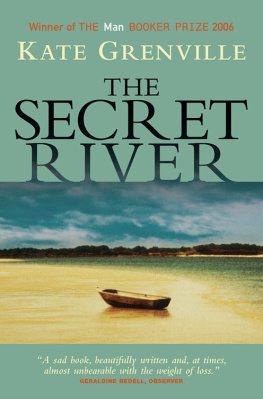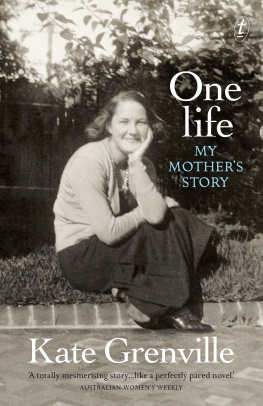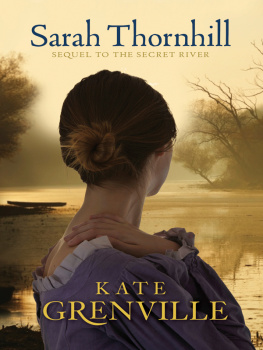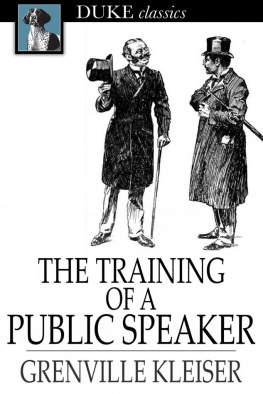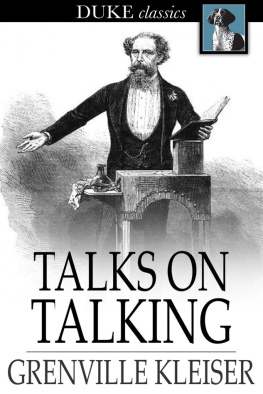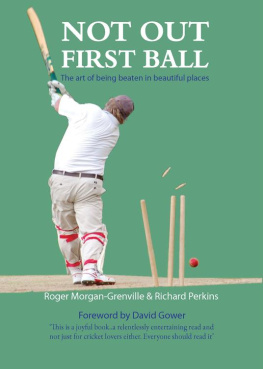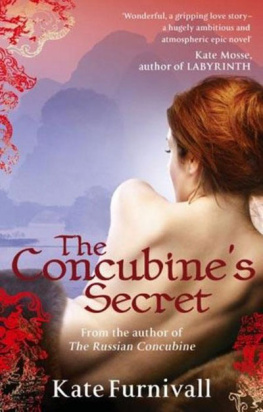Kate Grenville - The Secret River
Here you can read online Kate Grenville - The Secret River full text of the book (entire story) in english for free. Download pdf and epub, get meaning, cover and reviews about this ebook. year: 2005, publisher: Canongate Books, genre: Detective and thriller. Description of the work, (preface) as well as reviews are available. Best literature library LitArk.com created for fans of good reading and offers a wide selection of genres:
Romance novel
Science fiction
Adventure
Detective
Science
History
Home and family
Prose
Art
Politics
Computer
Non-fiction
Religion
Business
Children
Humor
Choose a favorite category and find really read worthwhile books. Enjoy immersion in the world of imagination, feel the emotions of the characters or learn something new for yourself, make an fascinating discovery.
- Book:The Secret River
- Author:
- Publisher:Canongate Books
- Genre:
- Year:2005
- Rating:3 / 5
- Favourites:Add to favourites
- Your mark:
- 60
- 1
- 2
- 3
- 4
- 5
The Secret River: summary, description and annotation
We offer to read an annotation, description, summary or preface (depends on what the author of the book "The Secret River" wrote himself). If you haven't found the necessary information about the book — write in the comments, we will try to find it.
The Secret River — read online for free the complete book (whole text) full work
Below is the text of the book, divided by pages. System saving the place of the last page read, allows you to conveniently read the book "The Secret River" online for free, without having to search again every time where you left off. Put a bookmark, and you can go to the page where you finished reading at any time.
Font size:
Interval:
Bookmark:
This novel is dedicated to the Aboriginal people of Australia:past, present and future.
T he Alexander, with its cargo of convicts, had bucked over the face of the ocean for the better part of a year. Now it had fetched up at the end of the earth. There was no lock on the door of the hut where William Thornhill, transported for the term of his natural life in the Year of Our Lord eighteen hundred and six, was passing his first night in His Majestys penal colony of New South Wales. There was hardly a door, barely a wall: only a flap of bark, a screen of sticks and mud. There was no need of lock, of door, of wall: this was a prison whose bars were ten thousand miles of water.
Thornhills wife was sleeping sweet and peaceful against him, her hand still entwined in his. The child and the baby were asleep too, curled up together. Only Thornhill could not bring himself to close his eyes on this foreign darkness. Through the doorway of the hut he could feel the night, huge and damp, flowing in and bringing with it the sounds of its own life: tickings and creakings, small private rustlings, and beyond that the soughing of the forest, mile after mile.
When he got up and stepped out through the doorway there was no cry, no guard: only the living night. The air moved around him, full of rich dank smells. Trees stood tall over him. A breeze shivered through the leaves, then died, and left only the vast fact of the forest.
He was nothing more than a flea on the side of some enormous quiet creature.
Down the hill the settlement was hidden by the darkness. A dog barked in a tired way and stopped. From the bay where the Alexander was anchored there was a sense of restless water shifting in its bed of land and swelling up against the shore.
Above him in the sky was a thin moon and a scatter of stars as meaningless as spilt rice. There was no Pole Star, a friend to guide him on the Thames, no Bear that he had known all his life: only this blaze, unreadable, indifferent.
All the many months in the Alexander, lying in the hammock which was all the territory he could claim in the world, listening to the sea slap against the side of the ship and trying to hear the voices of his own wife, his own children, in the noise from the womens quarters, he had been comforted by telling over the bends of his own Thames. The Isle of Dogs, the deep eddying pool of Rotherhithe, the sudden twist of the sky as the river swung around the corner to Lambeth: they were all as intimate to him as breathing. Daniel Ellison grunted in his hammock beside him, fighting even in his sleep, the women were silent beyond their bulkhead, and still in the eye of his mind he rounded bend after bend of that river.
Now, standing in the great sighing lung of this other place and feeling the dirt chill under his feet, he knew that life was gone. He might as well have swung at the end of the rope they had measured for him. This was a place, like death, from which men did not return. It was a sharp stab like a splinter under a nail: the pain of loss. He would die here under these alien stars, his bones rot in this cold earth.
He had not cried, not for thirty years, not since he was a hungry child too young to know that crying did not fill your belly. But now his throat was thickening, a press of despair behind his eyes forcing warm tears down his cheeks.
There were things worse than dying: life had taught him that. Being here in New South Wales might be one of them.
It seemed at first to be the tears welling, the way the darkness moved in front of him. It took a moment to understand that the stirring was a human, as black as the air itself. His skin swallowed the light and made him not quite real, something only imagined. His eyes were set so deeply into the skull that they were invisible, each in its cave of bone. The rock of his face shaped itself around the big mouth, the imposing nose, the folds of his cheeks. Without surprise, as though he were dreaming, Thornhill saw the scars drawn on the mans chest, each a neat line raised and twisted, living against the skin.
He took a step towards Thornhill so that the parched starlight from the sky fell on his shoulders. He wore his nakedness like a cloak. Upright in his hand, the spear was part of him, an extension of his arm.
Clothed as he was, Thornhill felt skinless as a maggot. The spear was tall and serious. To have evaded death at the end of the rope, only to go like this, his skin punctured and blood spilled beneath these chilly stars! And behind him, hardly hidden by that flap of bark, were those soft parcels of flesh: his wife and children.
Anger, that old familiar friend, came to his side. Damn your eyesbe off, he shouted. Go to the devil! After so long as a felon, hunched under the threat of the lash, he felt himself expanding back into his full size. His voice was rough, full of power, his anger a solid warmth inside him.
He took a threatening step forward. Could make out chips of sharp stone in the end of the spear. It would not go through a man neat as a needle. It would rip its way in. Pulling it out would rip all over again. The thought fanned his rage. Be off! Empty though it was, he raised his hand against the man.
The mouth of the black man began to move itself around sounds. As he spoke he gestured with the spear so it came and went in the darkness. They were close enough to touch.
In the fluid rush of speech Thornhill suddenly heard words. Be off, the man was shouting. Be off! It was his own tone exactly.
This was a kind of madness, as if a dog were to bark in English.
Be off, be off! He was close enough now that he could see the mans eyes catching the light under their heavy brows, and the straight angry line of his mouth. His own words had all dried up, but he stood his ground.
He had died once, in a manner of speaking. He could die again. He had been stripped of everything already: he had only the dirt under his bare feet, his small grip on this unknown place. He had nothing but that, and those helpless sleeping humans in the hut behind him. He was not about to surrender them to any naked black man.
In the silence between them the breeze rattled through the leaves. He glanced back at where his wife and infants lay, and when he looked again the man was gone. The darkness in front of him whispered and shifted, but there was only the forest. It could hide a hundred black men with spears, a thousand, a whole continent full of men with spears and that grim line to their mouths.
He went quickly into the hut, stumbling against the doorway so that clods of daubed mud fell away from the wall. The hut offered no safety, just the idea of it, but he dragged the flap of bark into place. He stretched himself out on the dirt alongside his family, forcing himself to lie still. But every muscle was tensed, anticipating the shock in his neck or his belly, his hand going to the place, the cold moment of finding that unforgiving thing in his flesh.
I n the rooms where William Thornhill grew up, in the last decades of the eighteenth century, no one could move an elbow without hitting the wall or the table or a sister or a brother. Light struggled in through small panes of cracked glass and the soot from the smoking fireplace veiled the walls.
Where they lived, down close to the river, the alleyways were no more than a stride across, and dimmed even on the brightest day by the buildings packed in hugger-mugger. On every side it was nothing but brick walls and chimneys, cobblestones and mouldering planks where old whitewash marked the grain. There were the terraces of low-browed houses hunched down on themselves, growing out of the very dirt they sat on, and after them the tanneries, the shambles, the glue factories, the maltings, filling the air with their miasmas.
Next pageFont size:
Interval:
Bookmark:
Similar books «The Secret River»
Look at similar books to The Secret River. We have selected literature similar in name and meaning in the hope of providing readers with more options to find new, interesting, not yet read works.
Discussion, reviews of the book The Secret River and just readers' own opinions. Leave your comments, write what you think about the work, its meaning or the main characters. Specify what exactly you liked and what you didn't like, and why you think so.

